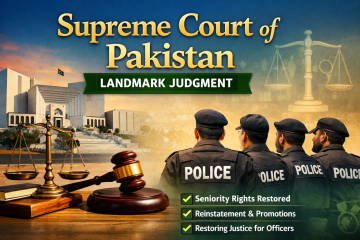Title:
Introduction:
The Muslim Family Laws Ordinance (VIII of 1961) is a significant legislative enactment in Pakistan that governs the personal status and family matters of Muslims. Section 7 of the ordinance deals with the concept of Talaq, or divorce, and outlines the powers and responsibilities of the Chairman Union Council in relation to it. This article aims to explore the scope of the Chairman’s authority under Section 7 and clarify the extent of their role in reconciling parties and issuing certificates of effectiveness of talaq.
The Role of Chairman Union Council:
Section 7 of the Muslim Family Laws Ordinance empowers the Chairman of the Union Council with specific responsibilities related to Talaq. The primary function of the Chairman is to facilitate reconciliation between the spouses seeking divorce. This reflects a clear intention to promote amicable settlements and to protect the institution of marriage within the Muslim community. The Chairman acts as a neutral third party, striving to mend relationships rather than dissolve them.
Certificate of Effectiveness of Talaq:
One of the key tasks assigned to the Chairman is the issuance of a certificate of effectiveness of talaq. This certificate signifies that the Chairman has attempted to reconcile the parties and, upon their failure to reconcile, the Chairman acknowledges the effective pronouncement of talaq. This step underscores the legal formalities associated with the dissolution of a marriage and ensures that the process adheres to the principles of due process.
Limitations on the Chairman’s Powers:
While the Chairman’s role is pivotal in encouraging reconciliation and endorsing the effectiveness of talaq, their powers have clear limitations. The ordinance does not grant the Chairman the authority to determine whether a talaq has been validly pronounced or not. This crucial decision is reserved for the courts of competent jurisdiction. The Chairman’s role is administrative and procedural rather than adjudicative. Therefore, any dispute regarding the validity of a talaq must be settled in a court of law.
Judicial Review:
The reference provided, “2023 MLD 354,” likely pertains to a legal case or a judgment that addresses the interpretation of the powers of the Chairman Union Council under Section 7 of the ordinance. It would be essential to review the specific details and arguments presented in this case to fully understand its implications on the scope of the Chairman’s authority and the principles of Islamic family law.
Conclusion:
The Muslim Family Laws Ordinance of 1961 aims to balance the rights of individuals within the context of family matters while preserving Islamic values and principles. The Chairman Union Council’s role in relation to talaq under Section 7 is to mediate, reconcile, and formally acknowledge the dissolution of a marriage. However, the determination of the validity of a talaq remains the prerogative of the courts. The delicate balance between promoting reconciliation and upholding legal rights continues to shape the application of this ordinance in the realm of Muslim family law.



0 Comments